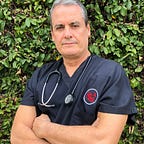Covid-19 vaccines and international travel
Although the COVID-19 situation, including the spread of new or worrisome variants, differs from country to country, international travel poses additional risks even for fully vaccinated travelers, who may be at increased risk of becoming infected and possibly spreading certain variants of COVID -19.
Recently, in addition to the obstacle course of all kinds to make trips from Venezuela to abroad, now we have the requirement by destination countries to comply with the full vaccination, that is, to have more than 15 days of having received the last dose of the accepted vaccines for both those with 2 doses or the Janssen vaccine of one dose. To date, the only vaccines that the country has received are the Russian Sputnik V, which has not received approval by the WHO and the one that is accepted, the Chinese Sinopharm and that of the Sinovac laboratories, the latter as part of the acquisition made by the country through the Covax mechanism, reported the Pan American Health Organization (PAHO). Cuba also sent a batch of the unapproved anticovid vaccine candidate Abdala to Venezuela.
The United States plans to implement new travel restrictions on all foreign visitors beginning November 1, a deadline that according to the Center for Disease Control (CDC), “will allow time to prepare”. The detail of these new requirements is that opens a new front of difficulties for those countrymen who have been immunized with the Russian Sputnik V vaccine, unlike those who were inoculated with Sinovac or Sinopharm, the one produced in Beijing, not the one developed in Wuhan. Additionally, they will have to show negative covid-19 test result before boarding the plane. In addition to requiring vaccination, with those approved in the US and those listed for emergency use by the WHO, representatives of the US government warned that they take additional measures to mitigate the spread of the virus: tests, contact tracing and use of masks.
While it is true that teleconferences on digital platforms such as zoom have flourished and facilitated educational and work exchanges, there are Venezuelans whose activities must be face-to-face, including medical treatment and family matters.
These requirements force travelers to the US and the European Union already vaccinated with Sputnik V, to look for a plan B to get around this obstacle, with combinations not proven by scientific studies. This plan may include traveling before November to get vaccinated again with one of the brands that were included in the CDC and WHO emergency list, such as Pfizer, Astra-Zeneca, Janssen (Johnson and Johnson) and Covishield. Another option is to be revaccinated with also approved Chinese vaccines such as Sinopharm and Sinovac, which would put pressure on the demand for vaccines in the country, displacing unvaccinated citizens. In other words, give travelers double lifesavers, when there are a high number of people who want to get their first vaccination or their first lifesaver. Another possibility not studied yet, would be a rapid booster for travelers with the Sputnik V scheme with the Johnson & Johnson mono dose, which has not yet been received in the country.
The requirement of a different vaccine to Sputnik V could generate an irregular situation in obtaining vaccination cards by means other than two punctures in the shoulder, which can create a black market of anti-covid vaccination certificates to obtain get on the plane.
The ideal situation would be for Russia to catch up with the recommendations made by the WHO technical teams to pass the evaluation, like the rest of the producers, and in this way its vaccine is incorporated into the list approved by each country in the future. near.
The reasons given by the WHO for the delay in the approval of the Russian Sputnik V vaccine are based on the fact that the information received was “incomplete”, not that the vaccine is bad. According to several international media, the WHO paused the evaluation after detecting risks of cross contamination in a processing plant. In addition, you requested a Serious Adverse Event (SAE) report and they did not send it; Nor did they gave details of the scientific study of the placebo group in phase 3. So, is it just a health issue or are there also situations of a geopolitical nature?
Those who believe that this is not a political issue argue that although the Sputnik V vaccine has good efficacy and safety demonstrated in recent studies, regulation and scrutiny of the conduct of scientific trials and manufacturing are very strict globally. Therefore, they consider that it is not a question of political maneuvers. In fact they admitted the Chinese vaccines (Sinopharm and Sinovac).
On the other hand, other experts argue that the lack of authorization of Sputnik V is a geopolitical reaction because the data of phase 3 that were requested, was already published in the journal “The Lancet”, there are millions of immunized people throughout the world. world and has been approved in 70 countries.
The endorsement of Sputnik V by the WHO, which is expected sooner or later, will depend on entering the United States and Europe for those who do not have Chinese drugs or the rest of the approved vaccines.
The coronavirus pandemic called by some “forever virus”, due to its unknown duration, continues to cause considerable challenges to society, not only due to travel restrictions, but in a context of global economic recession whose ramifications are not able to fully appreciate them in the present time.
@santiagobacci
Originally published at https://www.elnacional.com on Oct 01, 2021
